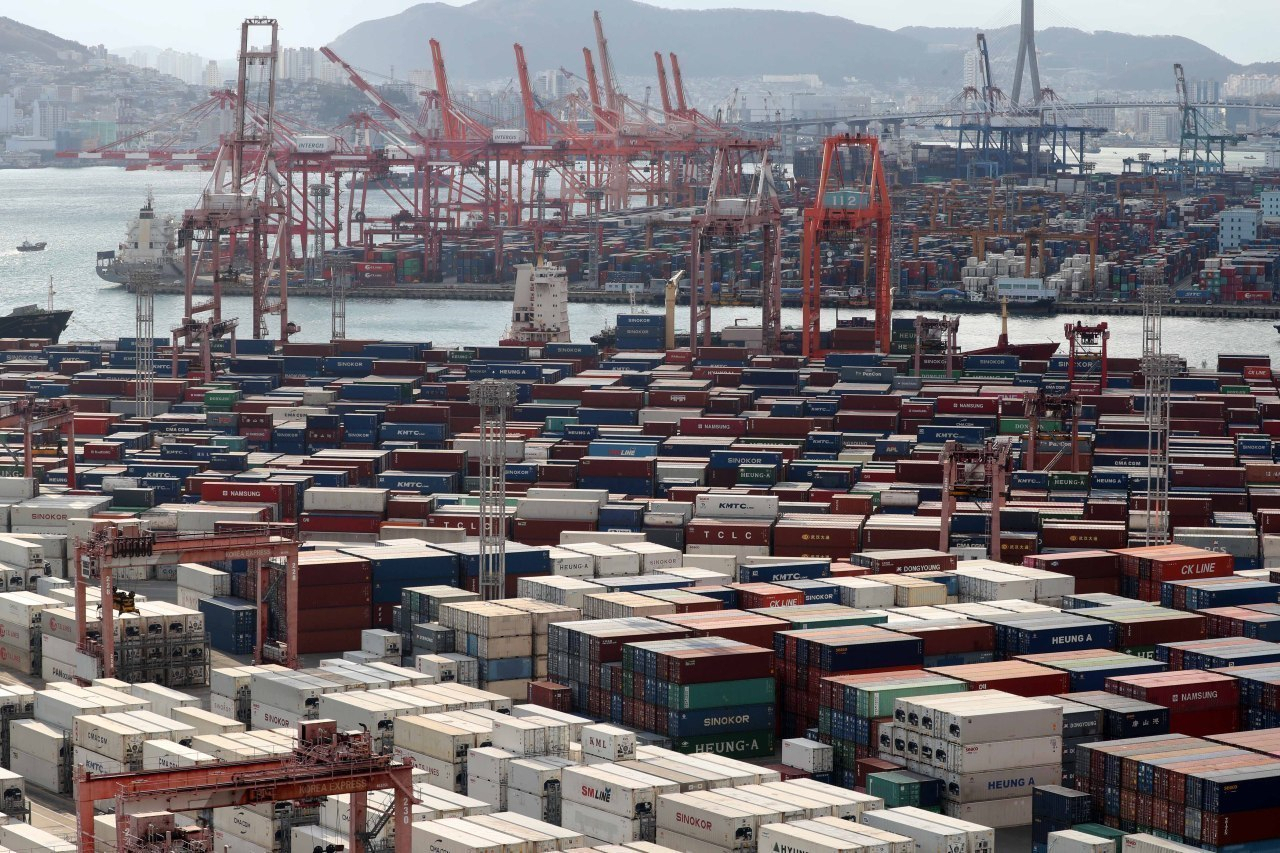S. Korea's exports down for fifth month in Feb. on falling chip demand
By YonhapPublished : March 1, 2023 - 11:07

South Korea's exports fell for the fifth consecutive month in February due mainly to weak global demand for semiconductors amid an economic slowdown, the industry ministry said Wednesday.
Outbound shipments fell 7.5 percent on-year to $50.1 billion in February, according to the data compiled by the Ministry of Trade, Industry and Energy.
Exports have logged an on-year fall since October last year amid aggressive monetary tightening by major economies to curb inflation. It is also the first time since 2020 that exports have declined for five months in a row.
The decline came as exports of semiconductors, the country's key export item, dived 42.5 percent last month on falling demand and a drop in chip prices.
A high base effect was also behind the decrease last month, as exports advanced 21.1 percent to $54.16 billion in February 2022, the highest figure for any February, according to the ministry.
Imports rose 3.6 percent on-year to $55.4 billion in February, as the country's energy imports went up 19.7 percent on-year, the ministry said. South Korea depends on imports for most of its energy needs.
Accordingly, the country suffered a trade deficit of $5.3 billion last month.
Imports have exceeded exports in South Korea since April last year on high energy prices, and it is the first time since 1997 that the country has logged a trade deficit for 12 months in a row.
In detail, overseas sales of semiconductors came to $5.96 billion last month, compared with $10.37 billion a year earlier, due to the downturn of the world's chip market.
The average contract price of DRAM fell to around $2.21 in December last year from about $3.4 in the first half of 2022, according to government data.
Sales of petrochemicals decreased 18.3 percent to $4.6 billion, and exports of steel products went down 9.8 percent to $2.97 billion.
Global sales of display items skidded 40.9 percent to $1.12 billion, and shipments of bio and health items tumbled 32.1 percent to $1.07 billion in February.
But car exports soared 47.1 percent to $5.6 billion, and sales of petroleum products rose 12 percent to $4.68 billion last month.
Exports of machinery went up 13 percent to $4.45 billion, and those of auto exports added 13.3 percent to $2.02 billion, the data showed.
By nation, exports to China, South Korea's No. 1 trading partner, sank 24.2 percent to $9.88 billion last month, extending the losing streak to the ninth month.
The fall was blamed on China's sagging demand for chips and petrochemical products amid an economic slowdown, the ministry said. South Korea's semiconductors exports to China dropped nearly 40 percent last month.
Shipments to the Association of Southeast Asian Nations slid 16.1 percent to $8.46 billion. ASEAN comprises Brunei, Cambodia, Indonesia, Laos, Malaysia, Myanmar, the Philippines, Thailand, Singapore and Vietnam.
But exports to the United States rose 16.2 percent to $9 billion on solid demand for cars, batteries and other related items, and those bound for the European Union climbed 13.2 percent to $6.2 billion.
Exports to the Central and South American countries fell 19.1 percent to $1.85 billion, and those to the Commonwealth of Independent States decreased 13.6 percent to $1.05 billion amid the prolonged Russia-Ukraine war.
Exports to India, however, rose 11 percent to $1.5 billion, and those to the Middle Eastern nations jumped 20.2 percent to $1.65 billion, the data showed.
"A strong push to boost exports is a must to overcome the current multiple challenges, given our high external dependence on the economy. The government will make all-out efforts to support exporters and create new growth momentum," Industry Minister Lee Chang-yang said.
The government set this year's export target at $685 billion, up 0.2 percent from last year's total, though the finance ministry earlier said that exports were forecast to mark a 4.5 percent on-year decline in 2023. (Yonhap)




![[KH Explains] No more 'Michael' at Kakao Games](http://res.heraldm.com/phpwas/restmb_idxmake.php?idx=644&simg=/content/image/2024/04/28/20240428050183_0.jpg&u=20240428180321)














